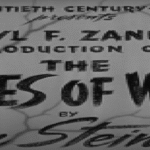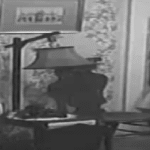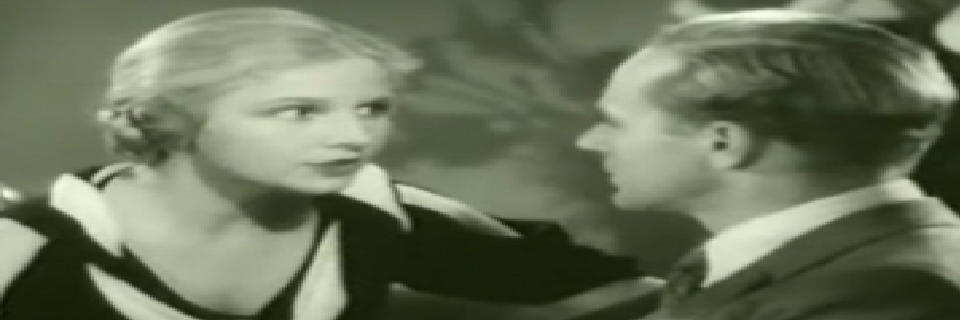The Animal Kingdom, a 1932 pre-Code drama directed by Edward H. Griffith and adapted from Philip Barry’s successful stage play, is a thoughtful and incisive examination of personal integrity, love, and the compromises demanded by society. The film stars Leslie Howard, Ann Harding, and Myrna Loy in a tightly woven character piece that challenges conventional ideas about relationships, class, and artistic freedom. It is a film of quiet strength, driven not by spectacle but by dialogue and emotional nuance.
“Pre-Code” refers to a period in Hollywood filmmaking between the introduction of sound in the late 1920s and the strict enforcement of the Motion Picture Production Code (also known as the Hays Code) in mid-1934.
At the heart of the story is Tom Collier, played by Leslie Howard with characteristic sophistication and moral sensitivity. Tom is a wealthy New York publisher, born into privilege but more at home among artists and bohemians than bankers and businessmen. He owns a small, independent publishing house that produces works of literary value rather than commercial success, a reflection of his commitment to quality over profit. Tom is an idealist, a man who has deliberately distanced himself from the trappings of high society in favour of a more authentic, if precarious, existence.
Tom lives in a house in the countryside, outside of the city, where he enjoys the company of his butler, the eccentric and often inebriated Regan, and most importantly, Daisy Sage, his lover and confidante, played by Ann Harding. Daisy is a modern woman, an artist and a free spirit who shares Tom’s values and understands his reluctance to conform. Their relationship, though unconventional, is deeply affectionate and built on mutual respect. They live together without the formality of marriage, a bold choice for the time, and one that sets the tone for the film’s critique of societal expectations.
The plot begins in earnest when Tom announces his intention to marry Cecilia Henry, a polished and ambitious society woman portrayed by Myrna Loy. Cecilia is everything Daisy is not – poised, socially acceptable, and determined to mould Tom into a more conventional man, one who embraces his wealth and background rather than rejecting them. She represents the world Tom has tried to avoid, but which now tempts him with its promise of respectability and order.
Tom’s decision shocks Daisy, who, despite her independent spirit, is deeply hurt. She quietly steps aside, recognising that she cannot and will not compete with the expectations that Cecilia represents. Yet her departure is not melodramatic; she exits with grace, her sorrow understated but profoundly moving. The contrast between Daisy’s quiet dignity and Cecilia’s manipulative charm forms the emotional core of the film.
As Tom becomes more entangled in Cecilia’s world, the tensions between his ideals and the demands of his new life grow increasingly pronounced. Cecilia pressures him to abandon his publishing house in favour of more profitable ventures. She encourages him to move back to the city, to sever ties with his bohemian friends, and to adopt a lifestyle more befitting their social status. It is clear that she does not love Tom as he is, but rather as she wants him to become.
Tom, at first, is seduced by the prospect of an easier life. He tries to convince himself that he can have both – the integrity of his ideals and the comfort of social acceptance. But as he begins to compromise, he finds himself increasingly alienated from the person he once was. The warmth and freedom of his old life give way to cold formality. The laughter and spontaneity he shared with Daisy are replaced by obligation and appearances.
The film’s strength lies in its subtle portrayal of these internal conflicts. Leslie Howard conveys Tom’s growing discomfort with remarkable restraint, allowing the audience to see the erosion of his spirit not through grand gestures but through quiet moments of doubt. Myrna Loy, in an early role that hints at the sophistication she would later perfect, plays Cecilia with a composed surface that barely conceals her calculating nature. Ann Harding, meanwhile, radiates quiet intelligence and emotional clarity as Daisy, offering a performance that is both grounded and luminous.
A key scene takes place when Tom finally visits Daisy again, months after their separation. The reunion is tender but bittersweet. Daisy, still in love with him, remains principled. She will not be his mistress, nor will she ask him to leave his new life for her. Instead, she offers him a mirror – not of judgment, but of truth. She reminds him of the man he used to be, of the values they once shared, and of the joy they found in each other’s company.
Tom’s transformation reaches a crisis point when he realises that in trying to please Cecilia, he has betrayed himself. He has allowed his work, his friendships, and his emotional authenticity to be sacrificed on the altar of conformity. The realisation is painful but necessary. In the final act of the film, Tom makes the difficult decision to end his engagement to Cecilia. He chooses instead to reclaim his independence, his passion for publishing, and the woman who loves him for who he truly is.
The film ends not with a dramatic reconciliation, but with a quiet sense of resolution. Tom returns to his country home, where Regan waits, somewhat confused but relieved. The implication is that Tom will seek out Daisy, not simply to resume their romance, but to rebuild his life with honesty and purpose. The story closes on a note of hope – not triumphant, but honest and earned.
From a cinematic perspective, The Animal Kingdom is restrained in style but rich in substance. The dialogue, drawn from Barry’s original play, is intelligent and engaging, exploring themes of integrity, class, gender, and the compromises people make in the name of love or security. The performances are uniformly excellent, with Howard’s nuanced portrayal anchoring the film, and Ann Harding delivering one of the era’s most poignant depictions of quiet strength.
As a pre-Code film, it benefits from a freedom to explore adult themes with maturity and honesty. It questions societal norms without being didactic, and presents its female characters with agency and complexity. Though it may lack the action or glamour of more commercially successful films of its time, The Animal Kingdom remains a compelling and sophisticated work.
The Animal Kingdom is a deeply human film, one that asks whether it is possible to live with integrity in a world that rewards conformity. It explores the tension between love and obligation, freedom and respectability, and offers a portrait of individuals navigating the complexities of modern life. Quietly powerful and enduringly relevant, it is a film that continues to resonate, not through spectacle, but through its honest and compassionate depiction of the human heart.







